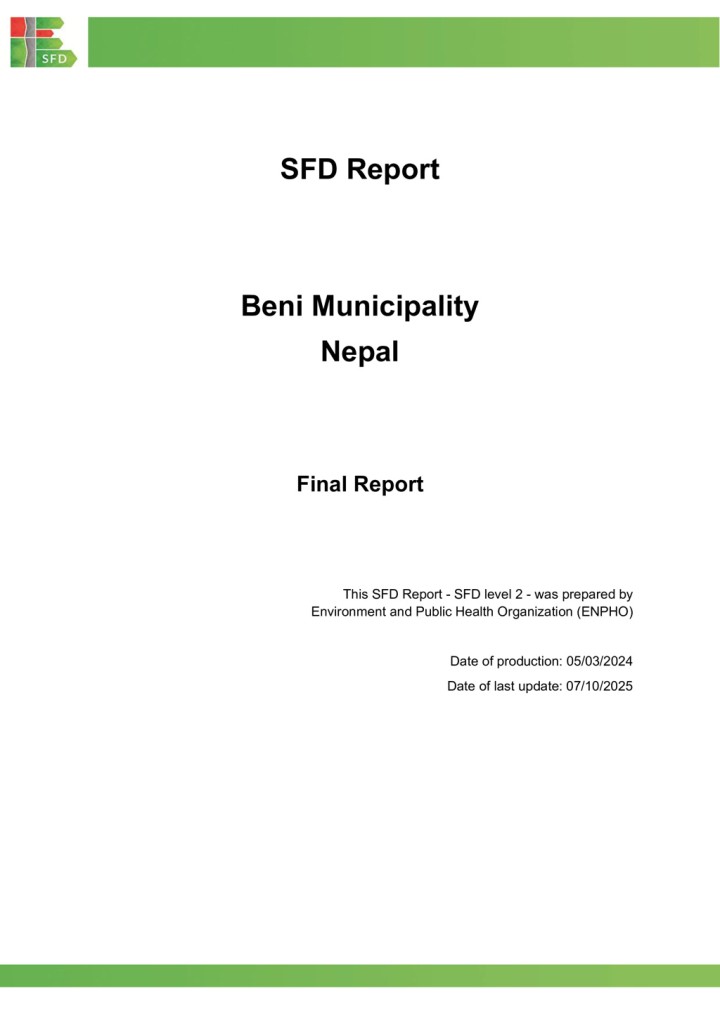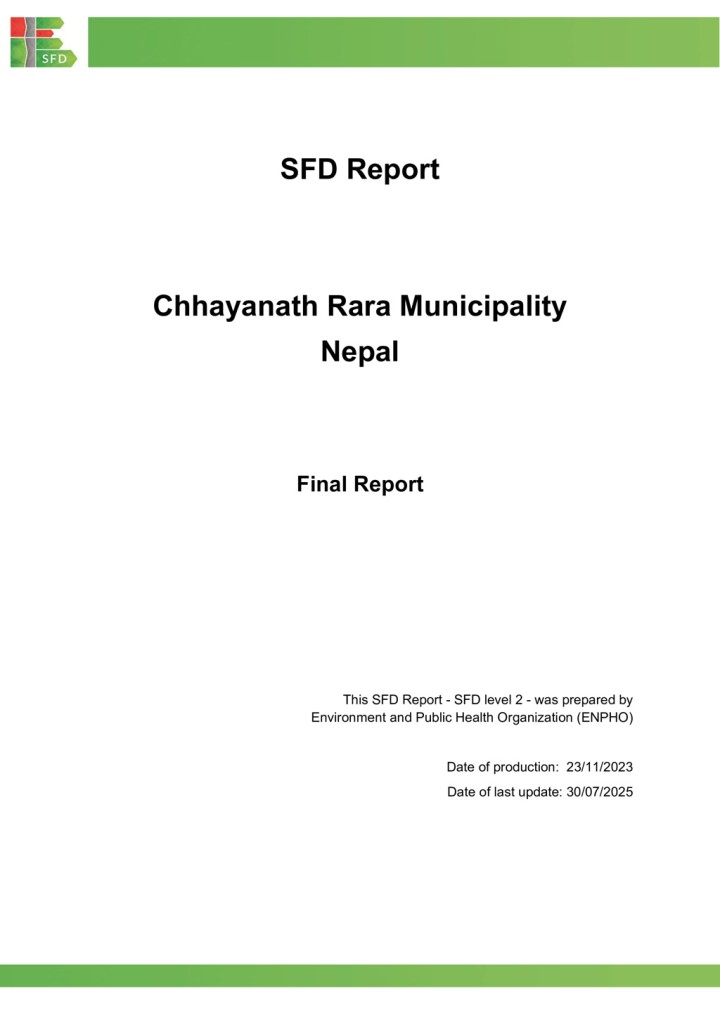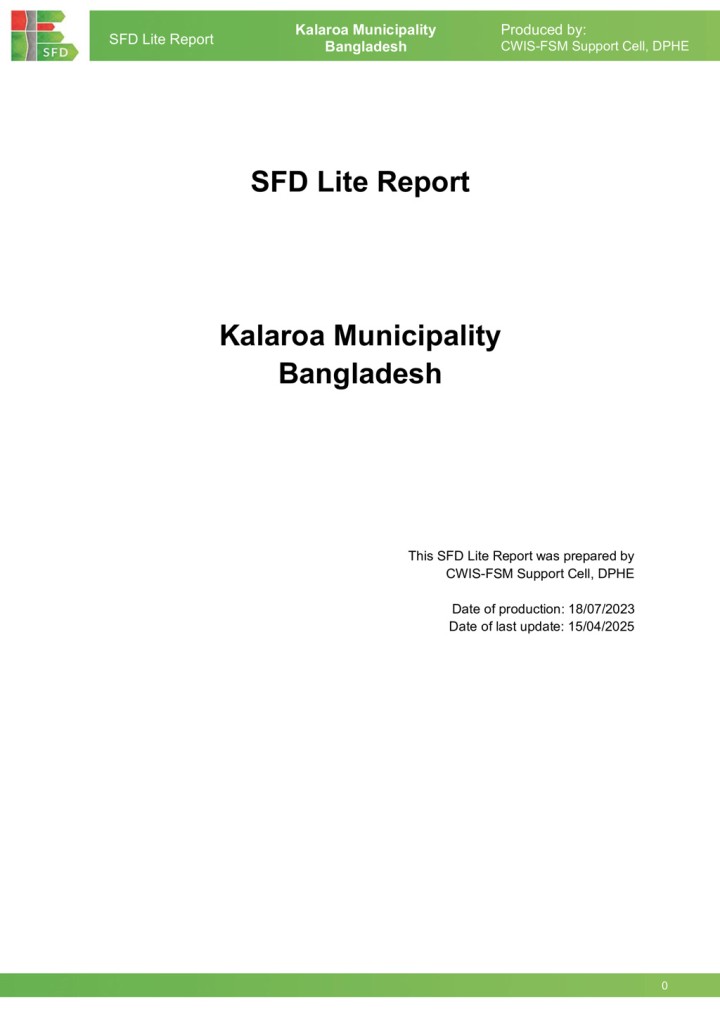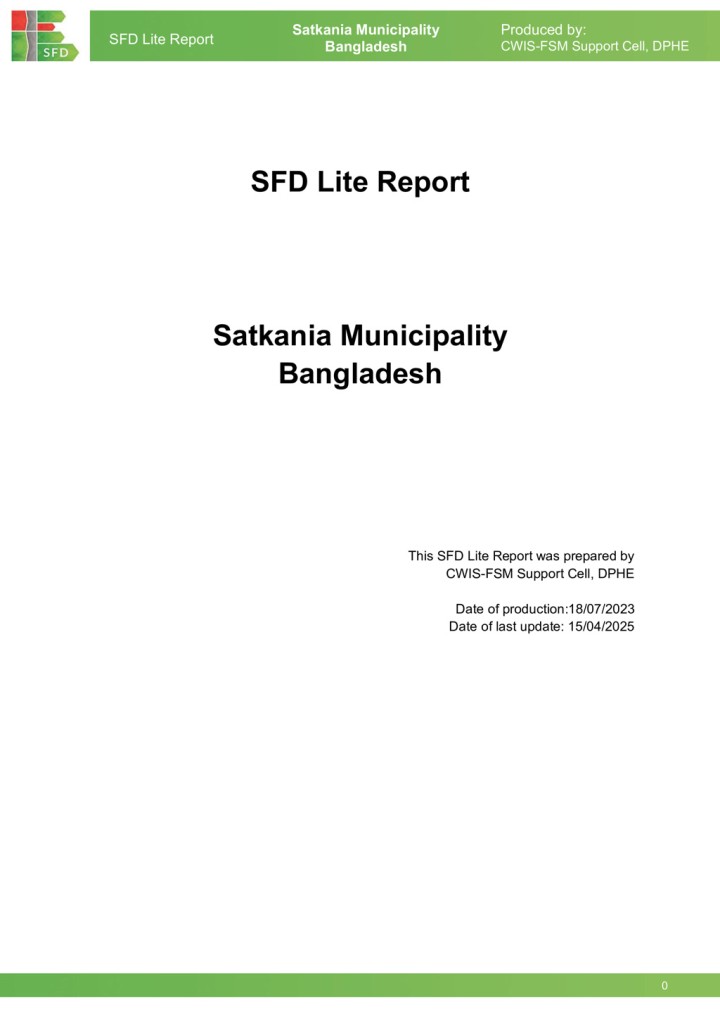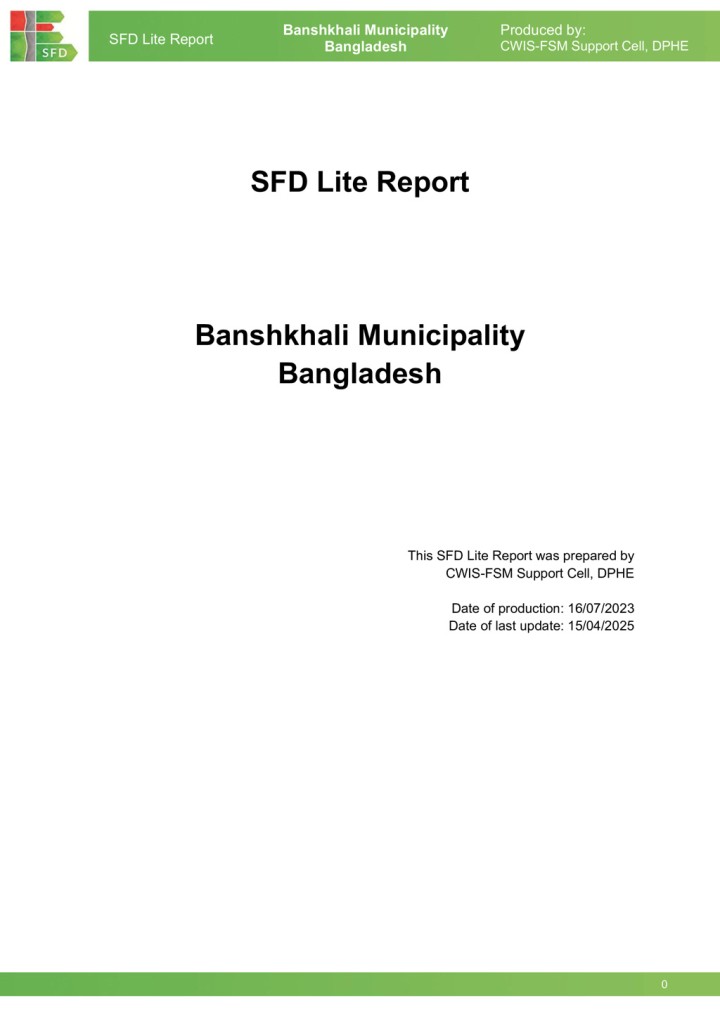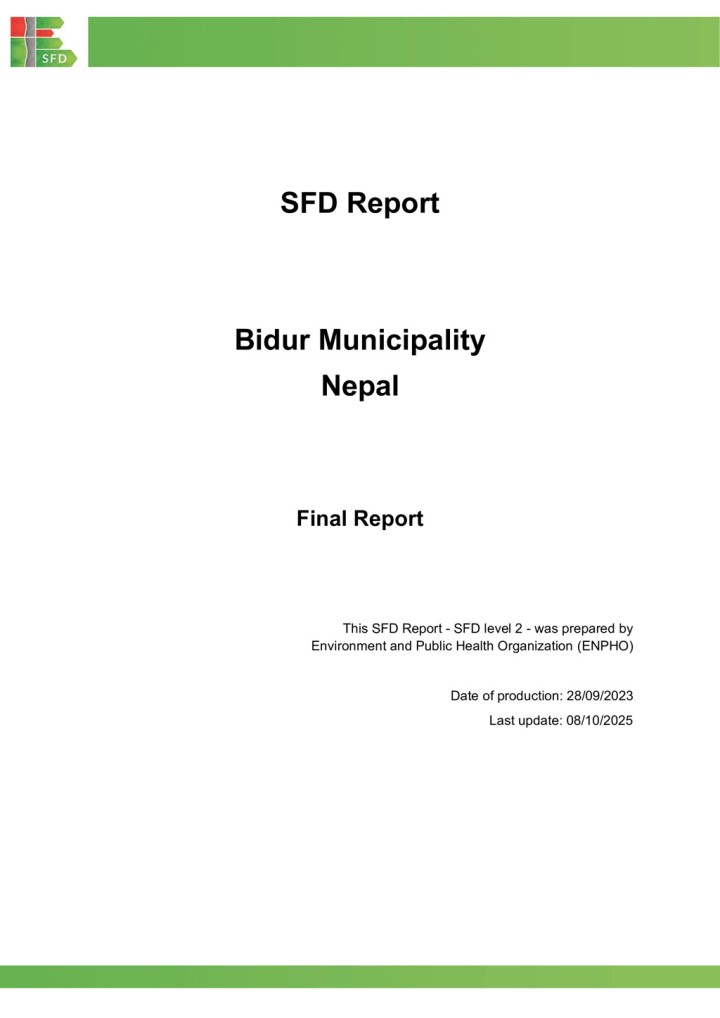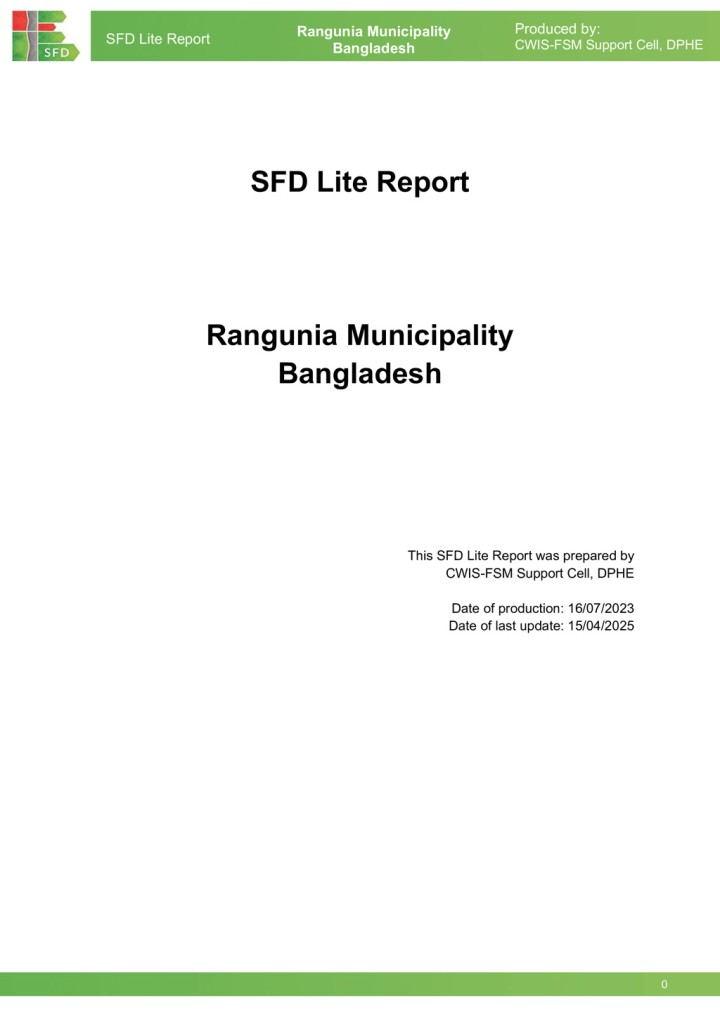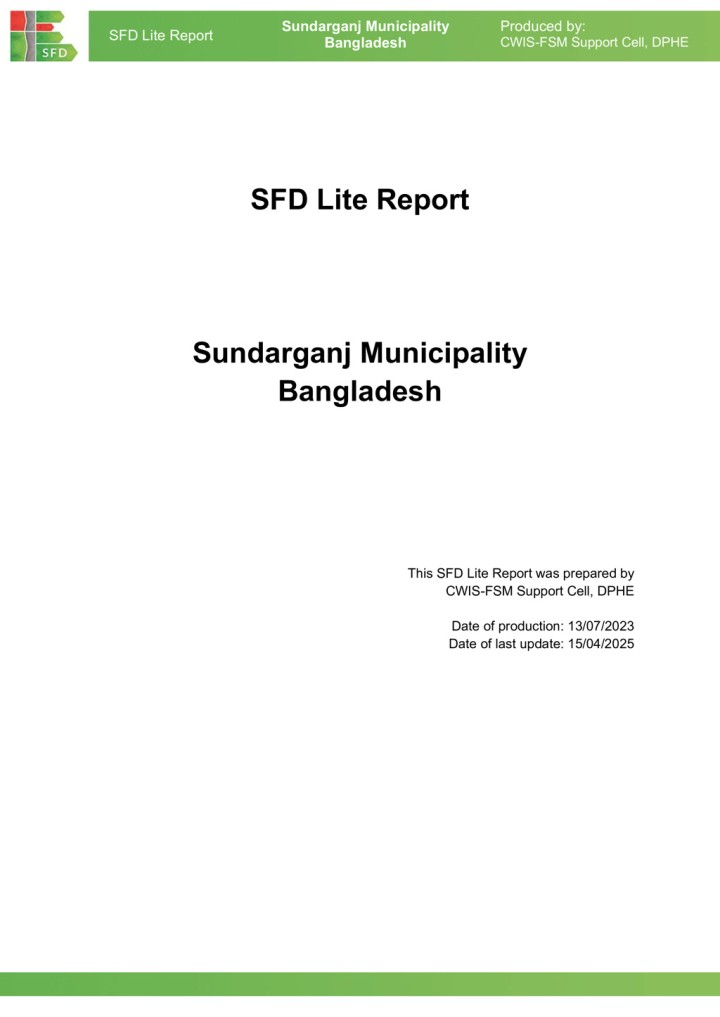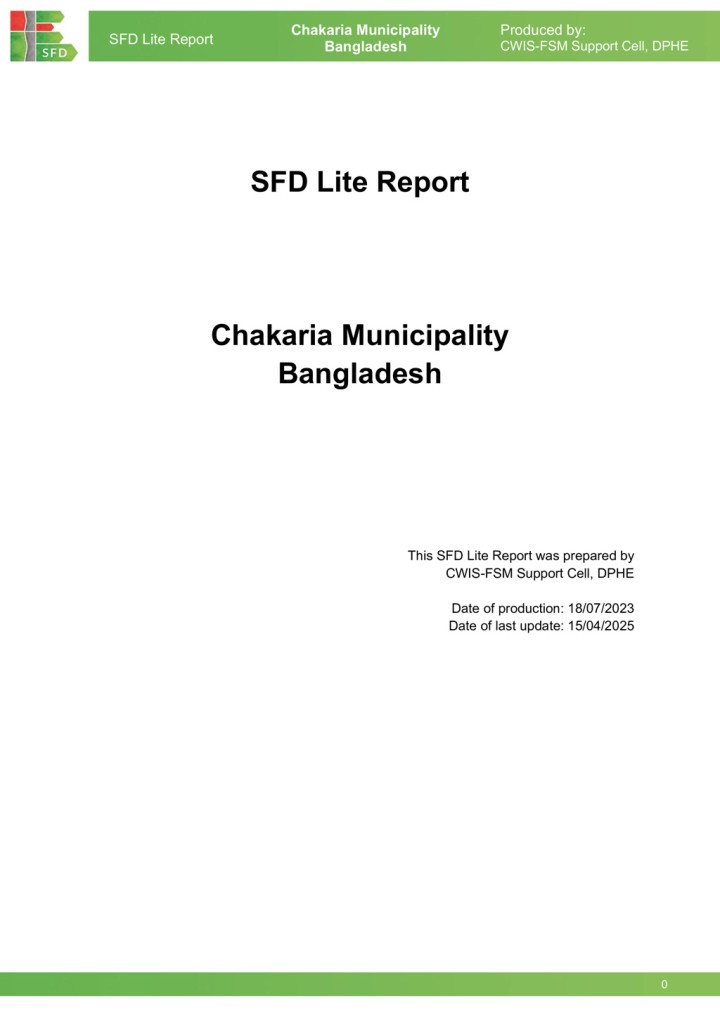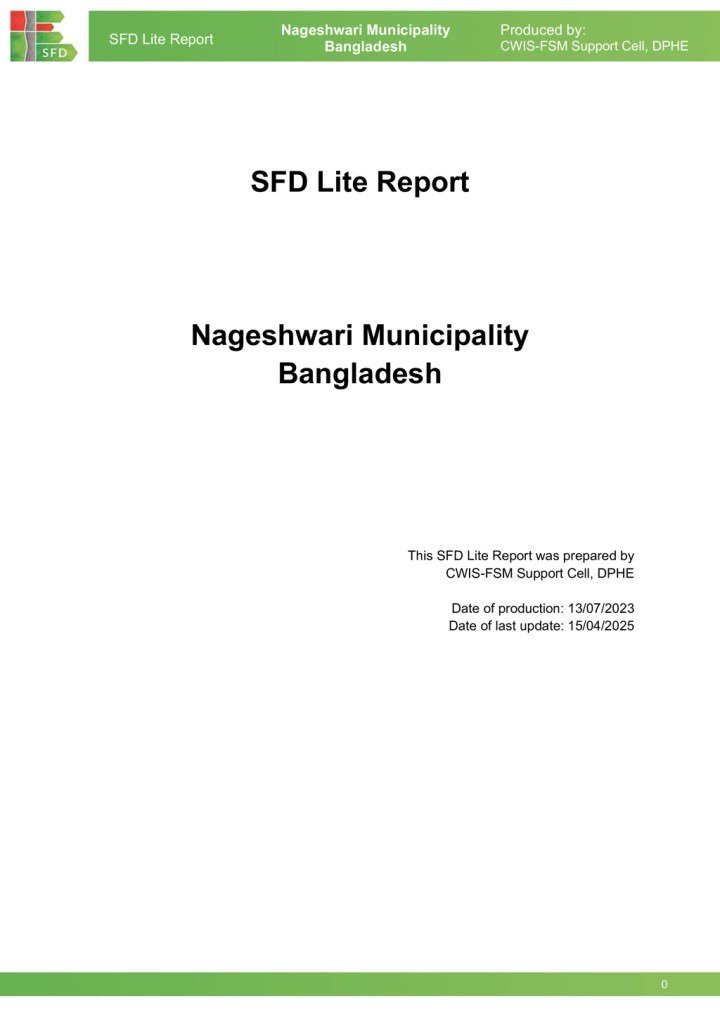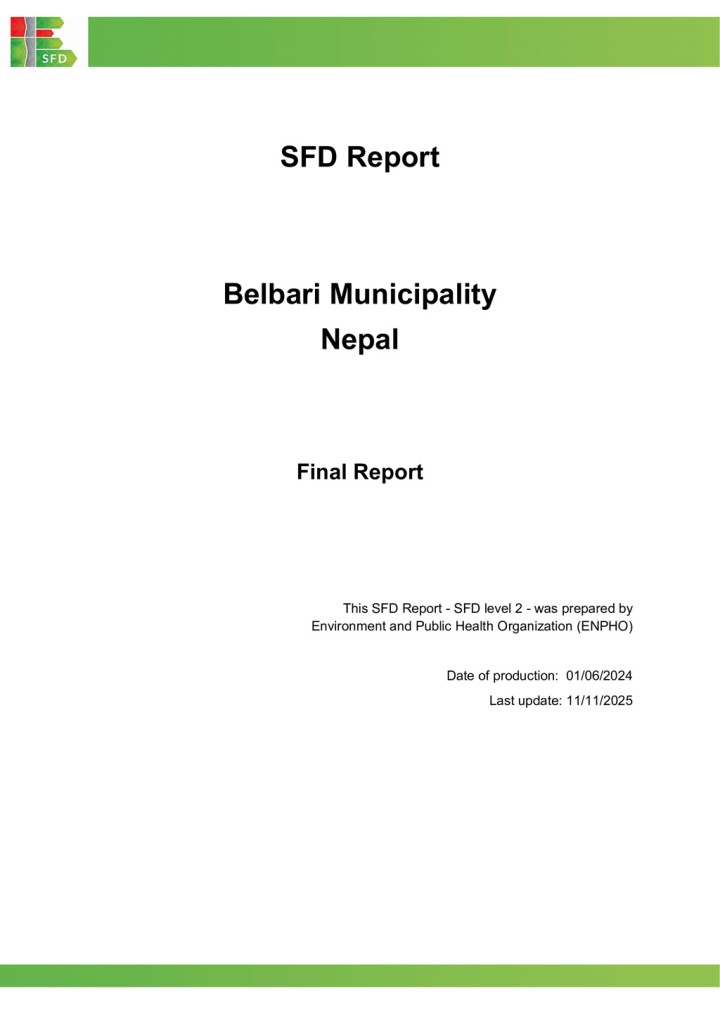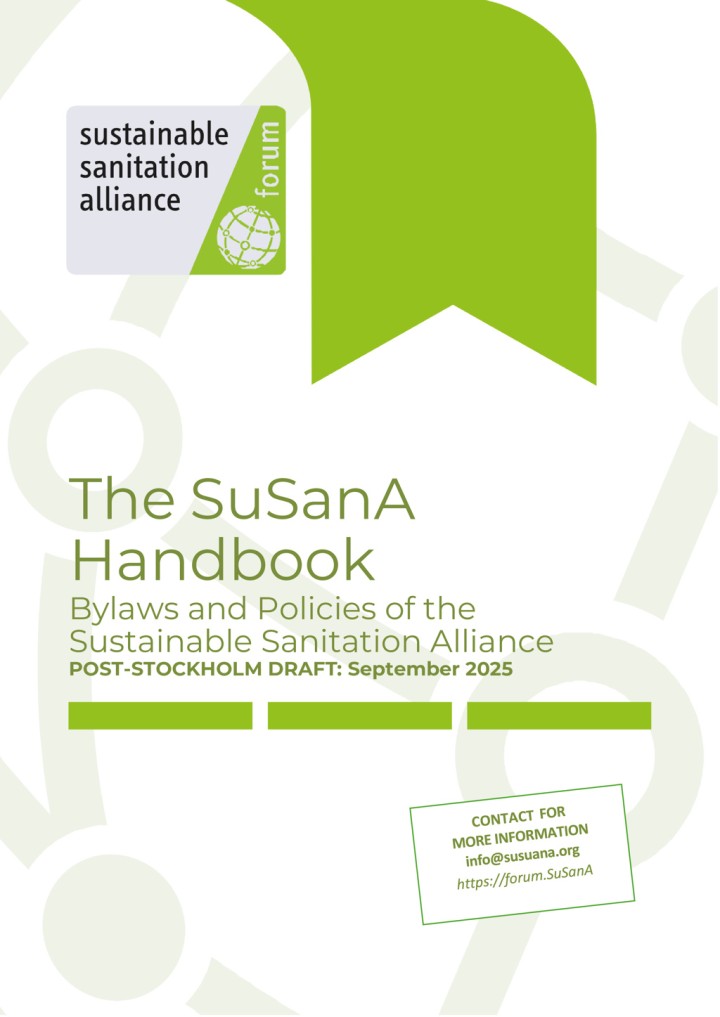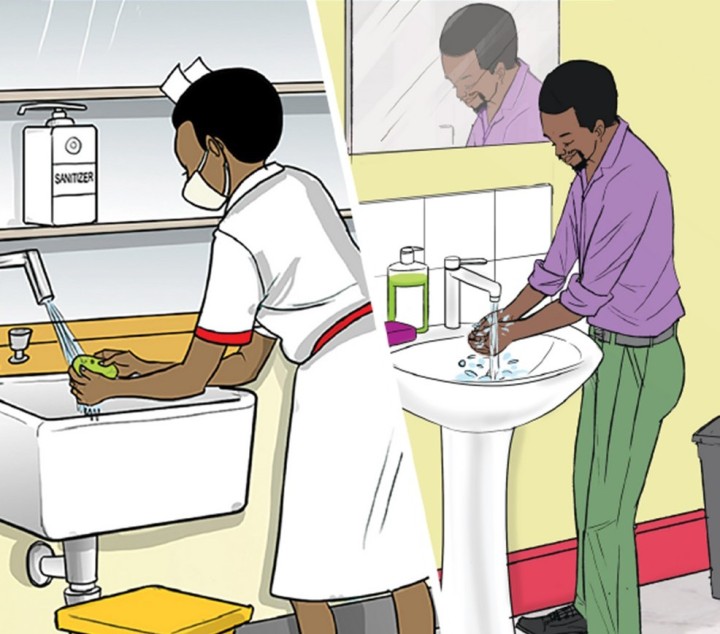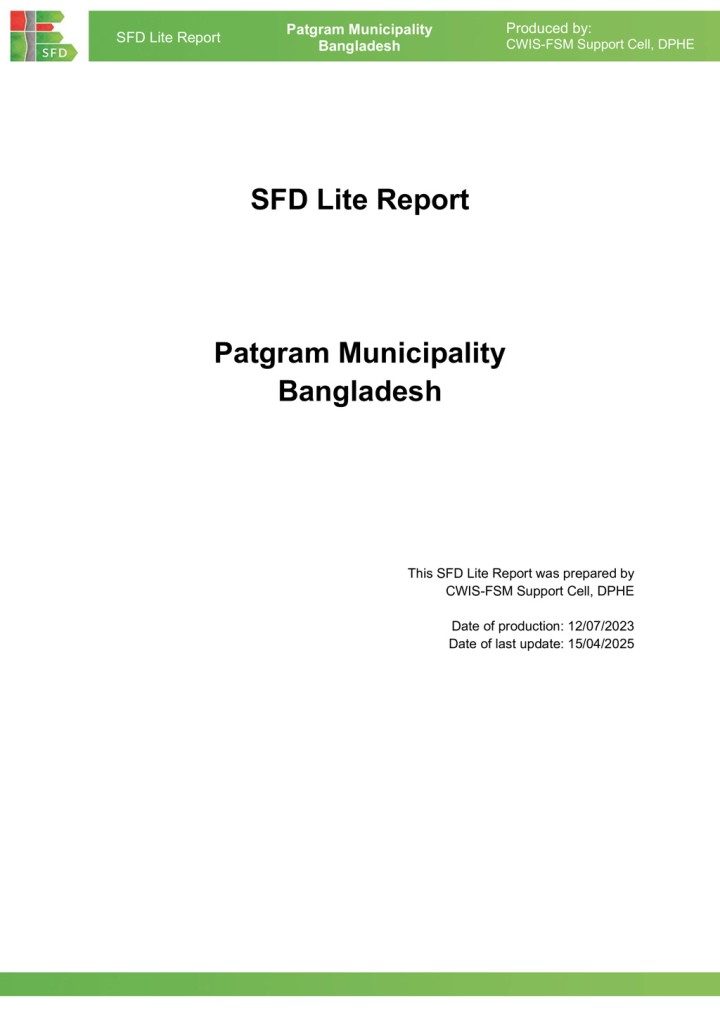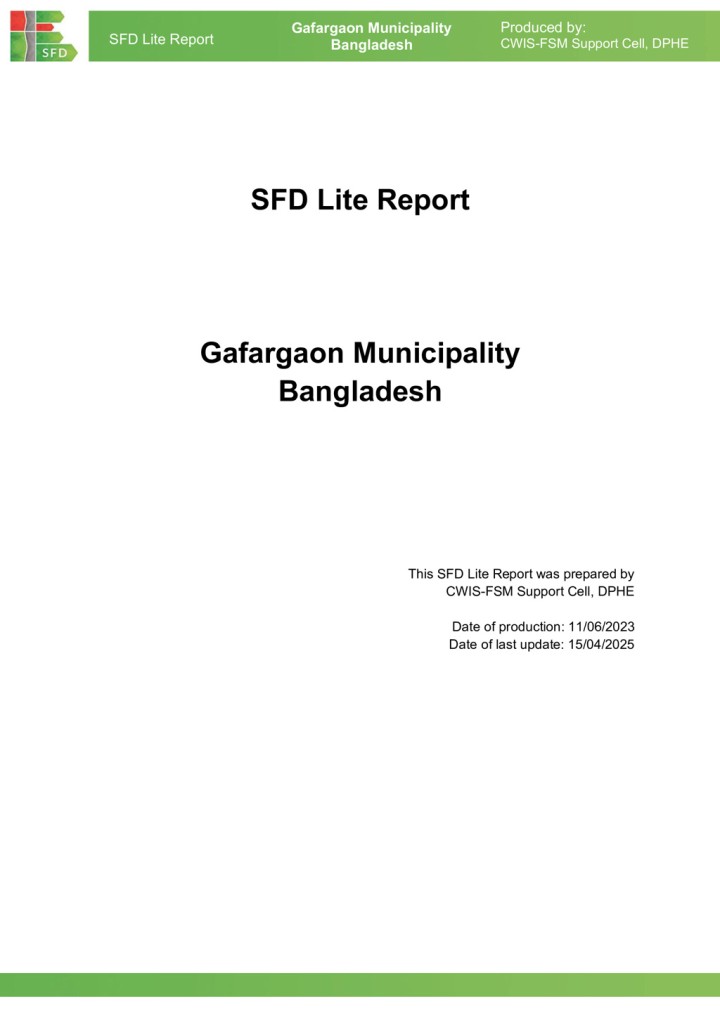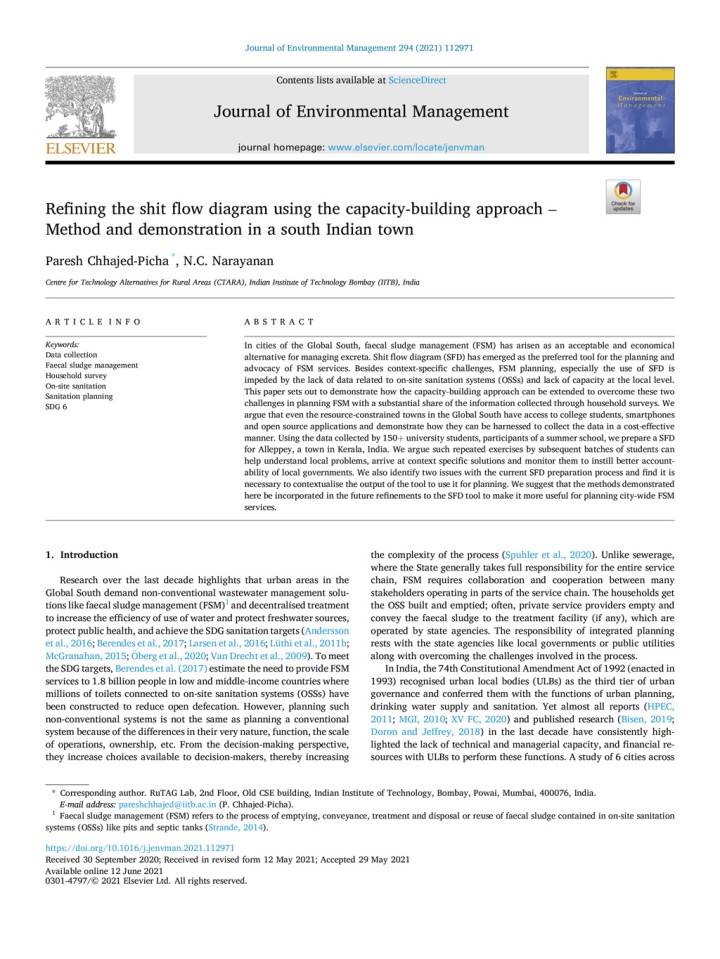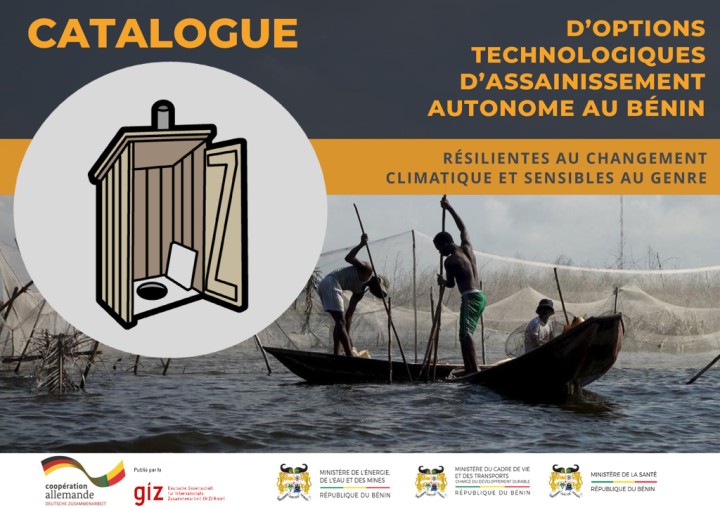Climate Resilient Sanitation Coalition (2025) GCF Sanitation Annex Infographic
This graphic is part of the GCF annex.
Environment and Public Health Organization (ENPHO) (2025) SFD (Level 2) Report - Gaindakot
Gaindakot Municipality, located in Nawalpur (Bardaghat Susta East) district, Gandaki Province, Nepal was formed in 2014 by merging Mukundapur, Amarapuri, and Gaindakot Village Development Committees VDCs, which was further expanded by incorporating Ratanpur VDC. The municipality encompasses 18 political wards across 159.93 square kilometres, with a population of 79,349 individuals residing in 20,191 households. This section provides a quick summary of the various sanitation technologies […]
Environment and Public Health Organization (ENPHO) (2023) SFD (Level 2) Report - Beni
Beni Municipality, situated in the heart of Myagdi district within the Gandaki province of Nepal. Its name, derived from the convergence of the Kaligandaki and Myagdi rivers, symbolizes the name Beni. It was established on May 8, 2014, and operational since May 23, 2014. Beni Municipality was formed by merging several Village Development Committees (VDCs) that spreads 76.25 km2 across 10 political wards. The municipality […]
Environment and Public Health Organization (ENPHO) (2023) SFD (Level 2) Report - Chhayanath Rara
Chhayanath Rara is an urban municipality located in the Mugu district of the Karnali Province, Nepal and covering an area of 480.67 km2. The municipality is divided into 14 wards and is home to four major religious sites: Baraha area, Pasupati, Muktinath, Rishikes, and Chhayanath itself. As per the 2021 National Population and Housing Census, Chhayanath Rara Municipality recorded a population of 24,527 individuals residing […]
CWIS-FSM Support Cell, DPHE (2023) SFD (Lite) Report - Kalaroa Municipality
Kalaroa Municipality is located within the Kalaroa Sub-District (Upazila) situated in the Satkhira District (Zila) under Khulna Division. The geographical coordinates of Kalaroa are between 22°48' and 22°57' north latitudes and in between 88°54' and 89°09' east longitudes. It is bordered on the north by the sharsha, jhikargachha, and manirampur Upazilas, on the south by the satkhira sadar and the tala Upazilas, on the east […]
CWIS-FSM Support Cell, DPHE (2023) SFD (Lite) Report - Satkania Municipality
Satkania Municipality is located within the Satkania Sub-District (Upazila) situated in the Chattogram District (Zila) under Chattogram Division. The geographical coordinates of Satkania are 22° 05' 15.00"N and 92° 05' 4.92"E. It is bordered on the north by Chandanaish Upazila, on the south by Lohagara Upazila (Chattogram), on the east by Bandarban Sadar Upazila, and on the west by Banshkhali and Anowara Upazilas. According to the […]
CWIS-FSM Support Cell, DPHE (2023) SFD (Lite) Report - Banshkhali Municipality
Banshkhali Municipality is located within the Banshkhali Sub-District (Upazila) situated in the Chattogram District (Zila) under Chattogram Division. The geographical coordinates of Banshkhali are 22°01'30.00"N and 91°57'15.12"E. On the north, it is bordered by Anowara Upazila and the Sanguriver; on the south, Chakaria Upazila; on the east, Lohagara and Satkania Upazilas; on the west, the Kutubdia Channel and Kutubdia Upazila; and on the northwest, the […]
Environment and Public Health Organization (ENPHO) (2023) SFD (Level 2) Report - Bidur Municipality
Bidur, a municipality is situated in Nuwakot district of Bagmati Province, Nepal which is located at 69 km northwest of Kathmandu Valley. It comprises of 13 political wards and spread over an area of 130.01 square kilometres consisting of plains and hilly plateaus (Bidur Municipality, 2024). It has a total population of 59,227 individuals across 15,234 households (NSO,2021). It has subtropics and sub-humid climate, with […]
CWIS-FSM Support Cell, DPHE (2023) SFD (Lite) Report - Rangunia Municipality
Rangunia Municipality is located within the Rangunia Sub-District (Upazila) situated in the Chattogram District (Zila) under Chattogram Division. The geographical coordinates of Rangunia are 22°28'0.12" N and 92°04'59.88"E. Its borders are the Raozan and Kawkhali Upazilas on the west, Chandanaish, Patiya, and Boalkhali Upazilas on the south, Kaptai, Rajasthali, and Bandarban Sadar Upazilas on the east. According to the population census in 2011 by the Bangladesh Bureau […]
CWIS-FSM Support Cell, DPHE (2023) SFD (Lite) Report - Sundarganj Municipality
Sundarganj Municipality is located within the Sundarganj Sub-District (Upazila) situated in the Gaibandha District (Zila) under Rangpur Division. The geographical coordinates of Sundarganj are 25°33'29.88"N and 89°30'0.00"E. It is bordered on the north by the Upazilas of Pirgachha, Ulipur, and Chilmari, on the south by the Upazilas of Gaibandha Sadar and Sadullapur, on the east by the Upazilas of Chilmari and Char Rajibpur, and on […]
CWIS-FSM Support Cell, DPHE (2023) SFD (Lite) Report - Chakaria Municipality
Chakaria Municipality is located within the Chakaria Sub-District (Upazila) situated in the Cox’s Bazar District (Zila) of Chattogram Division. The geographical coordinates of Chakaria are 21°47'9.96" N and 92°04'40.08"E. It is bordered by the Upazilas of Lama and Naikhongchhari on the east, the Upazilas of Lohagara and Banshkhali on the north, the Upazilas of Cox's Bazar Sadar and Ramu on the south, and the Upazilas […]
CWIS-FSM Support Cell, DPHE (2023) SFD (Lite) Report - Nageshwari Municipality
Nageshwari Municipality is located within the Nageshwari Sub-District (Upazila) situated in the Kurigram District (Zila) under Rangpur Division.The geographical coordinates of Nageshwari are 25°58'5.41"N and 89°41'29.51"E. It is bordered on the north by the Indian states of West Bengal and Bhurungamari Upazila, on the south by Kurigram Sadar Upazila, on the east by Assam State of India, and on the west by Phulbari Upazila. According to […]
George Local Municipality (GLM) (2024) SFD (Level 1) Report - George Local Municipality
George Local Municipality (LM) is situated in the Garden Route District Municipality in the Western Cape Province of South Africa. It has a land area of 5,191 km2 that covers the Southern Cape and Little Karoo Regions of the Western Cape (George Municipality, 2025b). The municipality has a population of 294,929 people in 85,931 households (Stats SA, 2022). George LM has 28 municipal wards. 99% of households […]
Environment and Public Health Organization (ENPHO) (2024) SFD (Level 2) Report - Belbari
Belbari is a municipality situated in Morang district, Koshi Province of Nepal. It was established on May 8, 2014 (Baisakh 25, 2071 BS) by merging Belbari and Kaseni VDC which was again restructured in December 20166 by merging Dangihat and Bahuni Village Development Committee (VDC). It comprises 11 political wards spread across 132.79 square kilometres of geographical area in the eastern terai region of Nepal. […]
Sustainable Sanitation Alliance (2025) The SuSanA Handbook Bylaws and Policies of the Sustainable Sanitation Alliance
Sanitation is dignity, hygiene is health, water is life. They underpin everyday life for everyone who has ever lived and who will ever live - and yet today more than billion people do not even enjoy these basic human rights. Since 2007, the Sustainable Sanitation Alliance has been at the forefront of advocating that sanitation systems should be economically viable, socially acceptable, technically and institutionally appropriate, […]
Sanitation for Millions (2025) Service Offer: Improve Quality of Care in Health Care Facilities Through Localization of the WASH FIT Approach
This service offer provides guidance for the systemic adaptation, localization, and scaling up of the Water and Sanitation for Health Facility Improvement Tool (WASH FIT), developed by World Health Organization (WHO) and United Nations International Children's Emergency Fund (UNICEF), within a dedicated localized and harmonized partnership approach. It was developed by the global project Sanitation for Millions, implemented by the Deutsche Gesellschaft für Internationale Zusammenarbeit […]
CWIS-FSM Support Cell, DPHE (2023) SFD (Lite) Report - Patgram Municipality
Patgram Municipality is located within the Patgram Sub-District (Upazila) situated in the Lalmonirhat District (Zila) under Rangpur Division. The geographical coordinates of Patgram are 26°22'0.12" N and 89°00'0.00" E. It is bounded by West Bengal state of India on the north, east and west, Hatibandha Upazila and West Bengal state of India on the south. According to the population census in 2011 by the Bangladesh Bureau […]
CWIS-FSM Support Cell, DPHE (2023) SFD (Lite) Report - Gafargaon Municipality
Gafargaon Municipality is located within the Gafargaon Sub-District (Upazila) situated in the Mymensingh District (Zila) under Mymensingh Division. The geographical coordinates of Gafargaon are 24°25' 55.20"N and 90° 33' 30.60"E. On the north, it is bordered by the Upazilas of Trishal and Nandail, on the south, by the Upazilas of Kapasia and Sreepur (Gazipur), on the east, by the Upazilas of Hossainpur and Pakundia, and […]
Paresh Chhajed-Picha; N.C. Narayanan (2021) Refining the shit flow diagram using the capacity-building approach – Method and demonstration in a south Indian town
In cities of the Global South, faecal sludge management (FSM) has arisen as an acceptable and economical alternative for managing excreta. Shit flow diagram (SFD) has emerged as the preferred tool for the planning andadvocacy of FSM services. Besides context-specific challenges, FSM planning, especially the use of SFD is impeded by the lack of data related to on-site sanitation systems (OSSs) and lack of capacity […]
Boris Agbossouto; Adrien Mazeau; Alexandra Dubois; Linda-Sophie Blochberger (2025) Catalogue – d’options technologiques d’assainissement autonome au Bénin
Au Bénin, les progrès en matière d’accès à des services d’assainissement adéquats restent limités, malgré les efforts déployés ces dernières années. Pour relever ce défi, le présent catalogue a été conçu comme un outil d’aide à la décision visant à améliorer l’accès à des ouvrages d’assainissement durables, adaptés aux réalités socio-économiques, culturelles et environnementales du pays. Ce catalogue met à la disposition des ménages et des […]


